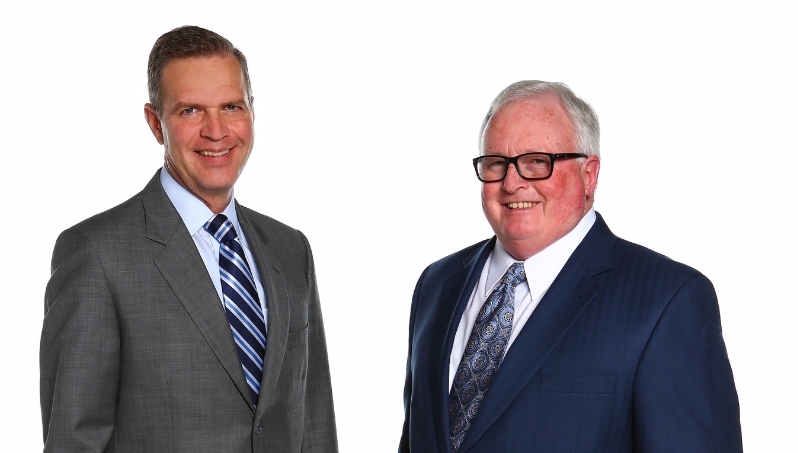It is now fair to say we are living through a period even experienced investors find difficult to navigate and comprehend. Negative nominal yields on many long maturity bonds in Europe and elsewhere pose a challenge to almost everything we thought we knew about investment. Governments are being paid by investors for the dubious privilege of owning their debt.
The debate around current valuations is reminiscent of the clash of ideas that surrounded the emergence of quantum mechanics in physics in the early part of the twentieth century. Quantum physics posed a serious challenge to the Newtonian world order. Even those who contributed to quantum theory found this new science hard to embrace because what physicists believed about causality had been thrown in the air. Albert Einstein said, “I cannot believe that God plays dice with the universe.” Niels Bohr, the Danish Nobel prize winner, replied by saying Einstein “should stop telling God what to do.”
Market participants also find themselves in a strange and disturbing new world. Negative bond yields at long maturities should not exist, even for government bonds. Corporates, which are subject to completely unknowable changes in technology and consumer demand, should not be able to borrow at negative yields. But Nestlé did in March and the bonds of other companies including BMW have also traded at negative rates. Investors were paying them to take their money, which hardly sounds rational. But in this strange new world, prospective Danish homeowners are able to get mortgages with negative yields.
Topsy-Turvy
The investment world has been turned upside down. Switzerland could borrow over 10-years on negative yields. At five years maturity it was joined by Germany, Denmark and France. More than $4 trillion of debt in the world today traded with negative yields and 52% of global bond markets traded at a yield of less than 1%. Finding long-term data on interest rates is difficult but this is a significant historical anomaly. The Bank of England has been in existence since 1694 and policy rates have been held at all-time lows for the past six years.
Interest rates are driving investor behaviour. A good example is
the corporate bond market. In 2010 individuals in the US owned
12% of the corporate bond market; they now own 28% because
they are desperate for yield. Equity markets are going up because investors want dividends. Earning revisions are falling at a time when prices are rising. This correlation between earnings revisions and pricing is not completely stable, but it does tend to persist over
time. Something else has been acting on equities and the most likely culprit is interest rates and how they have altered investor behaviour.
If investors are buying equities because they want dividend income then you would expect high dividend companies to outperform low dividend companies. You would expect high cash flow companies to outperform low cash flow companies. That is exactly what has been happening since the beginning of the rally in equities, both in the US and in Europe. If interest rates are the foundation upon which the whole edifice of financial markets is built, then we need to carefully consider what their likely future course is and how markets are reflecting this.
Rather like the uncertainty of quantum physics versus the hard rules of the Newtonian paradigm, it may be the conclusion is that prices no longer carry reliable information. They are being so distorted
by central bank intervention and by financial repression that the informational content contained in prices is now null and void.
The other possibility is that there is still some information in prices and the outlook for the global economy is much worse than we currently think and we are heading towards a deflationary bust.
Since the global financial crisis began in 2007, central banks in developed economies have pursued broadly similar policies.
The first thing they did was put in place a Zero Interest Rate Policy (ZIRP) and collapse short-term rates. Today, 90% of developed world economies have interest rates set at near zero or below. The next thing policymakers did, given that they quickly got to zero at the short end of curves, which they can effectively control, was to collapse long rates through quantitative easing.
The latest instalment of the saga is what the European Central Bank (ECB) has embarked on. It has cut its deposit rate to -0.20% and simultaneously started aggressive quantitative easing, expanding its balance sheet by €60 billion each month.
As investors we are trying to navigate an investment environment that combines an unprecedented level of policy rates and unprecedented expansion of balance sheets by central banks. That represents a serious manipulation of markets. In Europe, in particular, there is a serious misalignment of supply and demand for risk free assets.
The balance sheet expansion envisaged by the ECB represents more than the current net supply of government bonds. The situation is particularly acute in Germany where the net supply is going to be zero. The ECB is not only buying everything that is being issued.
It will be buying debt from the stock that is currently outstanding. This is not just a European phenomenon. All net sovereign bond issuance across the UK, US, Japan and the eurozone is ending
up on the balance sheets of central banks even though the UK and US have called a halt to QE, for now. The risk-free asset, the foundation of pricing across financial markets, is no longer under the influence of price-sensitive investors.
But markets are reflecting some degree of fear of deflation. Year-on-year inflation in the main economies around the world was negative in the eurozone and the US. Nominal growth is also poor. The US is supposedly the poster child of the economic recovery. But in terms of nominal GDP this recovery has been the most pallid for more than 50 years.
Central Banks Adopt New Playbook
In his famous essay of 1866, Lombard Street, Walter Bagehot wrote that in response to a credit crisis a central bank should lend freely to solvent counterparties at a high rate of interest. Now central banks are lending to everybody at lower rates when there is no crisis. Something fundamental has changed in the behaviour of central banks. It could be that they are now on permanent crisis footing; they have become conditioned to react to any economic weakness by easing policy.
What they do know is that they have exhausted their conventional monetary tools. With ZIRP there is nowhere else to go, so unconventional policy becomes the new normal. If you add to that mix the spectre of deflation you can see how policy might be dictated by fear. The other side effect of QE, deliberate or not, is that it weakens currencies. Currency devaluation is an effective policy tool in economies that have become uncompetitive,
though it is ultimately a zero-sum game as you need something to devalue against. The appreciation of the US dollar has been a safety valve for the global economy, but the US economy cannot take that strain forever. These are all plausible explanations for the evolution of policy and doubtless have played some role. But the biggest issue of all is the one that triggered the crisis in the first place: debt. It is likely that central banks are very worried about the debt burden across society and are doing everything to make it sustainable. In 2008, in the aftermath of the crisis, it would have seemed inconceivable that there would not be deleveraging. It became a buzzword. The banking system has delevered to a degree, particularly in the US, at the behest of regulators. But if you add up government, corporate and household debt there has been no deleveraging. The title of a recent report by the McKinsey Global Institute sums it up well, Debt and (Not Much) Deleveraging.
Since the crisis $60 trillion of debt has been created and $15 trillion of GDP. That is a ratio that is clearly concerning for central bankers though they rarely address it head on. There is no economy that has delevered in any area other than financial debt. The one country that comes closest is fiscally prudent Germany, but even with its budget surplus the overall debt to GDP ratio has increased by 8%. China has doubled its debt to GDP ratio over the past five years and if you strip out the denominator (growth) it has quadrupled. The speed of this debt build up is unprecedented.
No significant economy has managed to delever in spite of all of the rhetoric around austerity and prudence. This is a deeply ingrained societal problem to which there are no easy solutions. Leaving aside the enormous amount of credit that is now available to individuals and the maxed out credit cards, pay-day loans culture, the biggest issue is a structural one. The great era of social and welfare reforms was in the 1950s and 1960s. In the US, for example, Lyndon Johnson introduced the Social Security Act and Medicare as a part of his Great Society program in 1966. Growth then was between 4% and 5% in the big developed economies. At those levels of growth these welfare initiatives could be supported.
Since then growth has slowed as productivity has fallen. But those programs have stayed in place. They are a third-rail issue, no politician dare touch them. As a result, even before the crisis,
fiscal deficits were chronic in many countries. The other issue is demographics. The old and the young rely disproportionately on the state and the age dependency ratio – the ratio of dependents versus the productive, working population – is increasing everywhere as people live longer and choose to have less children. Japan’s enormous debt burden has as much to do with demographics as economic mismanagement.
The trend growth rate in the developed world is no longer between 4% and 5%. The new reality is perhaps between 1.5% and 2%. That makes the whole dynamic of debt management extremely difficult. We are at saturation point. It is clear that governments cannot continue to issue record amounts of debt and central banks cannot continue to fund them by inflating their balance sheets.
It is this debt dynamic that has driven a shift in monetary policy away from a focus on inflation. The new goal is to maximise the gap between nominal growth and the current rate of interest. That has explained the behaviour of central banks and that is unlikely to change over the next few years.
Keep Right on to The End of The Road?
It is an over-used cliché, but all policymakers are doing is kicking the can down the road. There is no political will to address the fundamental issue of too much debt. The question we should be asking is whether there will be a dead end? Is there a limit to how far interest rates can fall and how far central banks can expand their balance sheets?
The answer to the first question is unequivocally “yes”. There is an asset called cash which is highly liquid and will never have a negative yield. There is a cost of carry and an issue of inconvenience, but there is also a tipping point at which people will take their money out of the financial system and put it under their mattresses if they see its value eroding. Where that level lies is hard to judge but it is unlikely to be as far away.
The authorities could ban cash, which is not as farfetched as it may seem. There is a Danish proposal to refuse cash payments in shops. But we are not quite there yet.
The issue of whether there is a limit on how far a central bank can expand its balance sheet is slightly more complex. Does the net worth of a central bank matter? It is not a question that they want to answer. But when you look at the leverage ratio of central banks, their assets versus capital, we are in the territory of Lehman Brothers prior to its implosion in 2008.
The Federal Reserve is 78 times levered and the Bank of Japan
79 times. The ECB is at 30 times. If you ask anyone if this matters you will get a shrug. Of course, central banks cannot go bust in a traditional commercial sense, but that is not the real issue.
The problem is whether a financially weak central bank is able to conduct monetary policy in the way it wants to? A weak central bank has to deal with that problem and also the issue of credibility and trust.
It is possible to recapitalise a central bank. You can issue more currency and earn the exorbitant privilege of seigniorage. It is also possible to ask the government for more money, though that then calls into question central bank independence. Central banks with weak balance sheets tend to have more inflationary policies.
Neither further balance sheet expansion nor negative interest rates are particularly palatable. What that will probably mean is yet more unconventional policy. This may include pushing inflation targets upward. The Federal Reserve could start targeting 4% rather than 2%. There could also be direct price targeting or currency intervention. The end game is some form of inflation, because financial repression and inflating away debt is probably viewed as the least bad policy option. In a fiat currency system
a government or central bank can always create inflation.
In the meantime, financial bubbles will grow larger as investors search for yield. The current stable equilibrium of low inflation and high asset prices will persist for a while yet. There is still a lot of oversupply relative to demand in many sectors of the global economy. The sharp correction in commodity prices this year is one obvious example. Expectations, money supply, wages, and capacity utilisation all point to a relatively benign inflation picture for the time being.
Complex Systems and Tipping Points
Spotting the moment of transition to a higher inflation environment is very difficult. With interest rates so low and central bank policy possibly becoming even more unconventional, it is highly likely that we see current trends continue. But credit and equity markets are the assets that will perform horribly once we cross into a new regime of accelerating inflation.
The economy and financial markets are complex systems.
These systems have two main characteristics. The first is resilience. They are able to absorb a lot of shocks without changing their equilibrium state. That holds until they reach a critical threshold or tipping point. Suddenly the state changes. In academic circles it is called a catastrophic failure. That is probably how inflation will manifest itself.
Tipping points cannot be predicted because the system remains the same up to the tipping point. It is not within the system that the change happens. There is typically some external dynamic or exogenous shock that occurs. In the stable zone the system may oscillate left and right but essentially stay unchanged. In the unstable zone it can lurch suddenly in either direction.
For investors, the complexity of both the economic and financial systems presents a dilemma. Of course, you may be lucky and find an active manager that is so skilled he or she gets you out of markets at precisely the right time. A more rational thing to do is buy protection. But if you are five years away from the tipping point, that will be prohibitively expensive.
The best strategy is to find assets that will perform reasonably well in either scenario. Inflation sensitivity, income, and cash flow are the most desirable combination of characteristics. These are unlikely to be the best performing assets at any point in time, but you are buying a degree of certainty in what is a very uncertain investment environment. No one can know the future. There are a wide range of potential outcomes for economies and markets.
The best response is to build portfolios from the bottom up with strong foundations. Resilience, the ability to withstand shocks and cope with an ever-changing investment climate will be the central tenets of future performance.
Abdallah Nauphal, CEO at Insight Investment (part of BNY Mellon)





